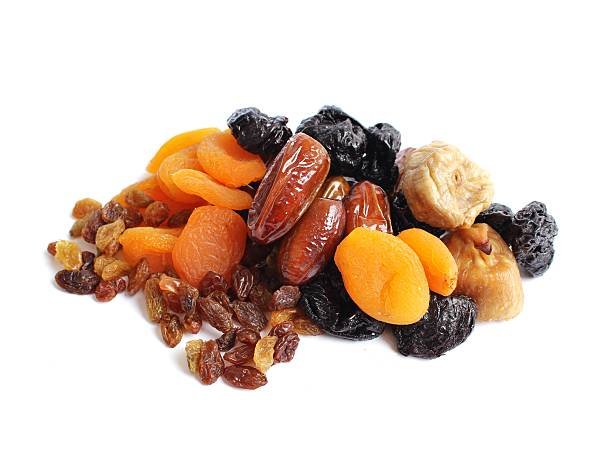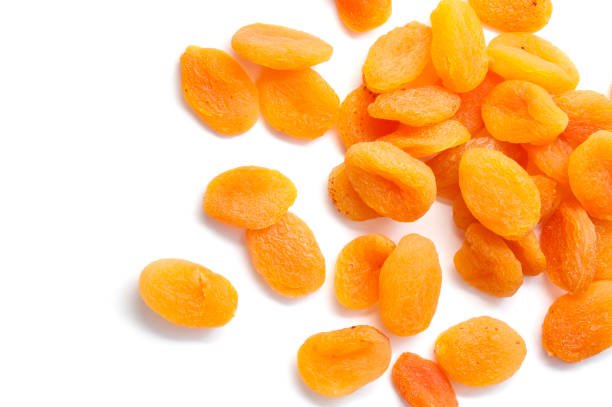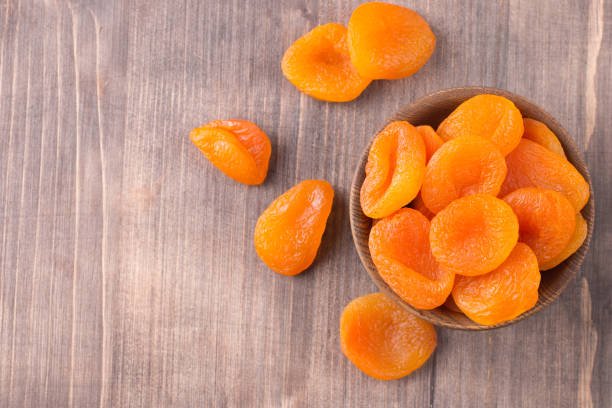Introduction
In the quest for the perfect snack to support weight management, we often face a tricky balance: how to satisfy our cravings without derailing our efforts to stay healthy. Most of us have been through this struggle, reaching for a sugary snack when hunger strikes, only to feel guilty afterward. But what if I told you there’s a sweet snack that not only satisfies your sweet tooth but also aids in weight management? Enter apricot dry fruit.
Apricots, especially in their dried form, offer a wide array of benefits that can support your weight loss or maintenance journey. Whether you’re looking to shed a few pounds or simply want to avoid the notorious “diet burnout,” apricot dry fruit could be the sweet solution you’ve been searching for. But how exactly do these sweet, chewy bites fit into the weight loss equation?
In this comprehensive guide, we’ll delve into the nutritional powerhouse that is apricot dry fruit, its specific benefits for weight management, how it compares to other snacks, and how to integrate it into your diet for maximum results. Buckle up, because we’re about to make weight loss a lot sweeter!
Nutritional Profile of Apricot Dry Fruit
Understanding why apricots are beneficial for weight management starts with looking at their nutritional profile. Packed with essential nutrients while being low in calories, dried apricots can easily become your go-to snack for staying on track.
Rich in Fiber
One of the key attributes that make apricot dry fruit an effective tool for weight management is its high fiber content. Fiber is essential for promoting satiety and regulating digestion. When you consume foods that are rich in fiber, you tend to feel fuller faster and for longer periods. This is a crucial element in preventing overeating, a common hurdle in any weight management plan.
For example, a quarter-cup serving of dried apricots contains around 3.1 grams of dietary fiber. That may not sound like much, but it goes a long way toward improving your overall digestion and slowing the absorption of sugars into your bloodstream. This gradual absorption helps prevent insulin spikes, which are often responsible for sudden hunger pangs and cravings for unhealthy, sugary snacks.
Additionally, soluble fiber—found in apricots—forms a gel-like substance in your stomach, slowing the digestion process. This not only keeps you feeling fuller but also ensures a more stable release of energy over time. For those on a weight management journey, steady energy levels are key to staying active and motivated throughout the day.
Low-Calorie Snack
Despite their naturally sweet taste, dried apricots are surprisingly low in calories. This makes them an excellent snack option for anyone trying to watch their calorie intake without giving up the pleasure of eating. A quarter-cup serving typically contains about 67 calories, which is minimal compared to other sweet snacks like cookies, cakes, or candy bars that can range anywhere from 150 to 300 calories for the same portion size.
The low-calorie density of dried apricots is a significant advantage for people who struggle with portion control. Unlike processed snacks, which often leave you wanting more, dried apricots deliver satisfaction with just a small amount. This makes it easier to enjoy a healthy snack without tipping over your daily calorie limit.
Moreover, apricots are rich in natural sugars, which, when consumed in moderation, provide a quick energy boost without the crash associated with processed sweets. This makes them a great pre-workout snack to fuel your exercise routine or a mid-day energy lifter.

Packed with Vitamins and Minerals
But there’s more to dried apricots than fiber and low calories. They’re also loaded with essential vitamins and minerals that contribute to overall health—an important factor for anyone focused on weight management. After all, weight loss isn’t just about cutting calories; it’s about nourishing your body in a way that supports sustainable health and well-being.
Vitamin A and C
Apricots are particularly high in Vitamin A, especially in the form of beta-carotene. Vitamin A plays a pivotal role in maintaining eye health, supporting immune function, and promoting skin health. For individuals on a weight loss journey, a strong immune system is crucial, as it helps ward off illnesses that can derail your progress.
Beta-carotene, a powerful antioxidant, also helps fight free radicals in the body, reducing oxidative stress and inflammation. This is important because chronic inflammation can slow down your metabolism and make it harder to lose weight.
Vitamin C, another powerful antioxidant found in apricots, supports immune function and improves skin elasticity. For those shedding pounds, maintaining skin health is important as rapid weight loss can sometimes lead to loose skin. Consuming foods high in Vitamin C can help minimize this issue by supporting collagen production.
Potassium Benefits for Metabolism
Potassium, a mineral often overlooked in weight management discussions, plays a vital role in regulating metabolism. Apricot dry fruit is a great source of potassium, which helps balance electrolytes in the body, supports muscle function, and regulates fluid retention. Proper hydration is essential for effective weight loss, as dehydration can often be mistaken for hunger, leading to overeating.
Potassium also aids in muscle recovery, making it an ideal snack for those who engage in regular exercise as part of their weight management plan. By helping the muscles recover faster, potassium allows you to get back to your workout routine sooner, enhancing your overall weight loss efforts.
How Apricots Support Weight Management
At this point, you might be thinking: “Okay, apricots are nutritious, but how exactly do they help with weight management?” Let’s explore the specific ways in which apricot dry fruit supports your weight goals.
Satiety and Appetite Control
One of the primary struggles in any weight loss journey is controlling appetite. We’ve all been there—suddenly, hunger strikes, and before you know it, you’re reaching for something sweet or salty. This is where dried apricots shine.
The high fiber content in apricots helps regulate hunger by promoting feelings of fullness. When you eat foods high in fiber, they take longer to digest, which keeps you feeling satisfied for longer periods. This is a game-changer for anyone who finds themselves snacking frequently throughout the day. By incorporating dried apricots into your diet, you can reduce the frequency and intensity of cravings for unhealthy foods.
What’s more, the natural sweetness of dried apricots can satisfy your sweet tooth without the added guilt. This makes them an excellent replacement for high-calorie, high-sugar snacks that can sabotage your weight loss efforts.
Boosting Metabolism
Metabolism is the process by which your body converts what you eat and drink into energy. The faster your metabolism, the more calories you burn, even at rest. Several factors influence your metabolic rate, including age, gender, and physical activity level, but the foods you eat also play a role.
Dried apricots contain vitamins and minerals that can help give your metabolism a boost. Vitamin A, for instance, supports thyroid function, which is directly related to metabolic activity. A well-functioning thyroid ensures that your metabolism is running efficiently, burning calories at an optimal rate.
Additionally, the potassium in apricots aids in muscle recovery, allowing you to exercise more effectively and burn more calories. When your muscles recover quickly, you can engage in more frequent and intense physical activities, further boosting your calorie burn.
Low Glycemic Index
One of the hidden benefits of apricot dry fruit is its low glycemic index (GI). The glycemic index is a ranking of how quickly a food causes your blood sugar levels to rise. Foods with a high GI cause rapid spikes in blood sugar, leading to a quick release of insulin, which can result in energy crashes and cravings for more food shortly after eating.
On the other hand, foods with a low GI, like dried apricots, cause a slow and steady release of glucose into the bloodstream. This helps stabilize blood sugar levels, preventing those sharp hunger pangs and energy crashes that often lead to overeating. By keeping your blood sugar stable, dried apricots help you stay in control of your appetite and maintain steady energy levels throughout the day.
For individuals looking to manage their weight, especially those with insulin resistance or diabetes, choosing low-GI foods like apricots can be an effective strategy for preventing weight gain and promoting fat loss.

Hydration and Detoxification
Another often overlooked aspect of weight loss is hydration. Staying hydrated is critical for maintaining proper bodily functions, including digestion, metabolism, and detoxification. Apricot dry fruit, thanks to its high potassium content, helps the body maintain fluid balance.
Potassium works alongside sodium to regulate water retention in the body. By consuming enough potassium-rich foods like dried apricots, you can prevent bloating and water weight gain, which can make you feel heavier than you are. Additionally, proper hydration supports the detoxification process, helping your body eliminate toxins more efficiently.
When your body is detoxified and hydrated, it functions at its best, allowing for improved digestion, better nutrient absorption, and a more efficient metabolism—all essential for successful weight management.
Comparing Apricot Dry Fruit to Other Weight Loss Snacks
The weight loss snack market is flooded with options, from fresh fruits to processed bars and chips. How does apricot dry fruit compare? Let’s break it down.
Apricot Dry Fruit vs. Fresh Apricots
Both fresh and dried apricots offer unique benefits, but when it comes to weight management, there are some differences to consider.
Fresh apricots are lower in calories because they contain more water, which helps with hydration and keeps you fuller for longer. However, the drying process concentrates the fiber and nutrients in dried apricots, making them more nutrient-dense per serving. This means you need to eat fewer dried apricots to get the same amount of fiber and vitamins as you would from fresh ones.
If you’re looking for a quick, nutrient-packed snack that you can carry anywhere, dried apricots may be the better option. They’re portable, shelf-stable, and provide a concentrated source of nutrition.
Apricot Dry Fruit vs. Raisins
Raisins are another popular dried fruit that’s often touted as a healthy snack. While raisins do provide some health benefits, they are higher in sugar and calories compared to apricots. A quarter-cup serving of raisins contains around 120 calories, while the same amount of dried apricots contains only 67 calories.
Additionally, raisins have a higher glycemic index, meaning they cause blood sugar spikes more quickly than apricots. For those focused on weight management, dried apricots are the better option because they provide fewer calories and cause less of an insulin spike, helping to keep cravings at bay.
Apricot Dry Fruit vs. Processed Snack Bars
Snack bars marketed for weight loss are often loaded with hidden sugars, artificial ingredients, and unhealthy fats. While they may seem like a convenient option, many of these bars can be detrimental to your weight loss efforts, as they contain more calories and sugar than you might expect.
Dried apricots, on the other hand, are a whole food. They’re naturally sweet and require no added sugars or preservatives. They provide a cleaner source of energy and nutrients, making them a superior snack for anyone serious about managing their weight in a healthy, sustainable way.
How to Incorporate Apricot Dry Fruit into Your Weight Management Plan
The versatility of apricot dry fruit means you can easily incorporate it into various meals and snacks. Whether you’re on the go or preparing a gourmet meal, dried apricots can add both flavor and nutrition to your diet.
Pre-Workout Energy Boost
If you’re someone who enjoys exercising as part of your weight management plan, dried apricots can be an excellent pre-workout snack. Their natural sugars provide a quick source of energy, while the fiber helps sustain that energy throughout your workout. Pair them with a handful of almonds or walnuts for a balanced snack that provides both carbohydrates and healthy fats.
Post-Workout Recovery
After a workout, your body needs a mix of protein and carbohydrates to repair muscles and replenish energy stores. Dried apricots, paired with a source of protein like Greek yogurt or a boiled egg, can provide a quick and convenient post-workout recovery snack. The potassium in apricots helps prevent muscle cramps and supports faster recovery.
Breakfast Toppings
Start your day off right by adding dried apricots to your breakfast. Chop them up and sprinkle them over oatmeal, yogurt, or a smoothie bowl for a sweet and nutritious topping. This not only adds flavor but also increases the fiber and nutrient content of your meal, keeping you fuller for longer and reducing the temptation to snack mid-morning.
Salads and Grain Bowls
For a more substantial meal, try adding chopped dried apricots to salads or grain bowls. The natural sweetness of the apricots pairs well with savory ingredients like leafy greens, quinoa, and lean proteins. This combination of flavors and textures makes for a satisfying and balanced meal that will keep you energized and focused throughout the day.
Healthy Snacking
Of course, one of the easiest ways to enjoy apricot dry fruit is as a standalone snack. Keep a small container of dried apricots at your desk or in your bag for a quick pick-me-up when hunger strikes. The natural sweetness and chewy texture make them a more satisfying alternative to processed snacks.

Common Myths and Misconceptions about Dried Apricots and Weight Loss
There are plenty of myths surrounding dried fruits and their role in weight loss. Let’s clear up some of the confusion surrounding apricots.
“Dried Apricots Are Just Sugar”
One of the most common misconceptions is that dried apricots are “just sugar.” While it’s true that dried fruits contain natural sugars, they also come with a host of other nutrients—fiber, vitamins, and minerals—that make them a much healthier option compared to processed snacks with added sugars.
It’s important to remember that the sugar in dried apricots is naturally occurring, meaning it’s digested more slowly than the refined sugars found in candy or soda. As long as you practice portion control, the sugar in dried apricots won’t derail your weight loss efforts.
“You Can Eat Unlimited Amounts of Dried Apricots”
While dried apricots are a nutritious snack, it’s still possible to overeat them. Because they’re dried, they’re more calorie-dense than fresh fruit, meaning you can easily consume more calories than you realize. Stick to a quarter-cup serving to keep your calorie intake in check while still reaping the benefits of this delicious snack.
“Dried Apricots Are Bad for Digestion”
Some people worry that dried apricots may cause digestive discomfort, especially because of their high fiber content. However, digestive issues are usually the result of overconsumption or a sudden increase in fiber intake. If you’re not used to eating a lot of fiber, start with small portions and gradually increase your intake to give your digestive system time to adjust.
“All Dried Fruits Are the Same”
Not all dried fruits are created equal. While some dried fruits, like raisins or dates, are high in sugar and calories, dried apricots are relatively low in sugar and calories, making them a better option for weight management. Always check the label to ensure you’re choosing dried apricots that are free from added sugars or preservatives.
“Dried Apricots Cause Weight Gain”
As with any food, it’s all about moderation. Dried apricots themselves won’t cause weight gain unless you’re consuming them in excessive amounts. When enjoyed in reasonable portions, dried apricots can be a beneficial part of a weight loss diet.
Final Thoughts: Apricot Dry Fruit—Your Sweet Solution to Weight Management
Incorporating apricot dry fruit into your weight management plan can offer a delicious and nutritious way to stay on track. Its high fiber content, low calorie density, and rich vitamin and mineral profile make it an ideal snack for those looking to shed pounds or maintain a healthy weight. By replacing processed snacks with dried apricots, you can curb cravings, boost your metabolism, and enjoy sustained energy throughout the day—all while indulging in something sweet.
So the next time you’re looking for a snack to support your weight loss journey, reach for a handful of apricot dry fruit. It’s not just a tasty treat; it’s a smart choice for your health and well-being.
FAQs
1. Is dry apricot good for sugar patients?
Yes, dried apricots can be beneficial for people with diabetes when consumed in moderation. They have a relatively low glycemic index compared to other dried fruits, meaning they have a smaller impact on blood sugar levels. However, it’s essential to choose unsweetened varieties and monitor portion sizes to avoid excessive sugar intake.
2. Do dried apricots help in weight loss?
Absolutely! Dried apricots are low in calories and high in fiber, which promotes satiety and helps control cravings. Including them as a healthy snack in your diet can support your weight loss goals by providing essential nutrients without excessive calories.
3. Which dry fruit is good for sugar control?
Several dried fruits can help with blood sugar control, including dried apricots, cranberries, and figs. Dried apricots, in particular, are a great option due to their fiber content, which aids digestion and helps stabilize blood sugar levels.
4. Does drying fruit remove sugar?
Drying fruit does not remove sugar; instead, it concentrates the natural sugars. While the total sugar content remains the same, the drying process reduces the water content, making dried fruits more calorie-dense. Therefore, portion control is important when consuming dried fruits.
5. Are dried apricots full of sugar?
Dried apricots contain natural sugars, but they are not “full of sugar” compared to many processed snacks. A quarter-cup serving of dried apricots contains about 13 grams of sugar. While this is higher than fresh apricots due to the drying process, their fiber and nutrient content make them a healthier choice when consumed in moderation.
4o mini




Pingback: Benefits of Apricot Dry Fruit for Workouts